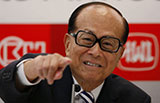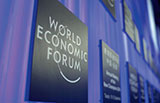Carmakers urged to work closely with dealers
By HAO YAN (China Daily) Updated: 2015-07-27 11:17High cost
The chamber's letter claimed that dealers are being forced to have an inventory of vehicles that is double the amount of cars they project to sell.
Pang Da, for example, spent 91.9 percent of its total costs on purchasing vehicles for a total of 49.7 billion yuan ($8 billion) last year, according to the company's annual report.
Wang said the auto sales landscape is drying up.
"To meet their inventory requirements, auto dealers must use high-cost funding channels, often with an annual interest rate higher than 15 percent, because they can't obtain 5 percent interest rate loans from banks."
Teng Yan, general manager at Beijing Xinxing Fuqing Automobiles Sales Co, said operational costs and property rents have been climbing.
"And payrolls cannot be reduced. Rent and labor take up about half of the expenses. A new dealer will not realize profit until after three years of operations," said Teng, who added that being unable to find financing is leading to bankruptcies for auto dealers.
Carmakers BMW and Jaguar Land Rover both said in news releases earlier this month that they will work to optimize auto stock inventories and increase profitability for dealers.
Low profit
Teng said returns on investments are dropping and that it takes a long time to pay off investments because annual profit rates in recent months have been hovering around 5 percent.
"Retail prices for new cars are at hefty discounts."
A former employee of the Changjiu Group, a dealership group operating mainly in China's southern provinces, said the company's revenues have mainly come from sales of new cars in recent years but its profits were being used to pay off bank loans.
"If money accumulates, it is used to pay back loans," said the employee who asked not to be named.
According to Pang Da's annual report, sales of vehicles contributed 4.95 percent to the group's gross margin in 2014.
"Dealers' margins are reducing. They are not what they were years ago. Now dealers are not making money by selling new cars, and in fact, dealers in the United States are making more money in after-sales services than selling cars," said Thomas Callarman, director of the China Europe International Business School's Center for Automotive Research.
Carmakers' support
In the letter, the chamber used a Chinese idiom to describe the relationship between carmakers and dealers: "If the lips are gone, the teeth will be cold".
It called upon carmakers to adjust their business philosophies.
"The benefit distribution structures were determined by carmakers, that's the reason why dealers are not making a profit. Some carmakers are continuing to push for unreasonable sales growth by pushing up the inventory on dealers," claimed Wang.
"Many carmakers opened too many 4S showrooms and shops, only to push more stock to more dealers."
The Economic Observer reported last week that carmakers handed out or are planning to offer subsidies to dealers. BMW, for instance, is distributing 7 billion yuan in subsidies.
Mercedes-Benz is handing out 1 billion yuan in subsidies, Jaguar Land Rover 765 million yuan, and Volkswagen is planning subsidies of around 1 billion yuan.
- China's auto maker opens showroom in Nigeria
- Chinese automaker BYD to sell electric cars in S. Korea in 2 years
- Premium automaker debuts three star models in Shanghai
- Qoros: Hatchback shows young automaker is growing up fast
- Car dealership rules take new direction
- BMW, Audi set pace in dealership networks
- 2015 China International Fair for Investment and Trade kicks off in Xiamen
- China's commodity imports robust in Jan-Aug period
- China stocks rebound 2.92%
- 2015 China box office already past 2014 total
- China foreign trade decline widens in August
- Interview: JP Morgan's senior executive bullish on China
- Innovation, development the focus for NZ mayors
- Lives of freelancers

















